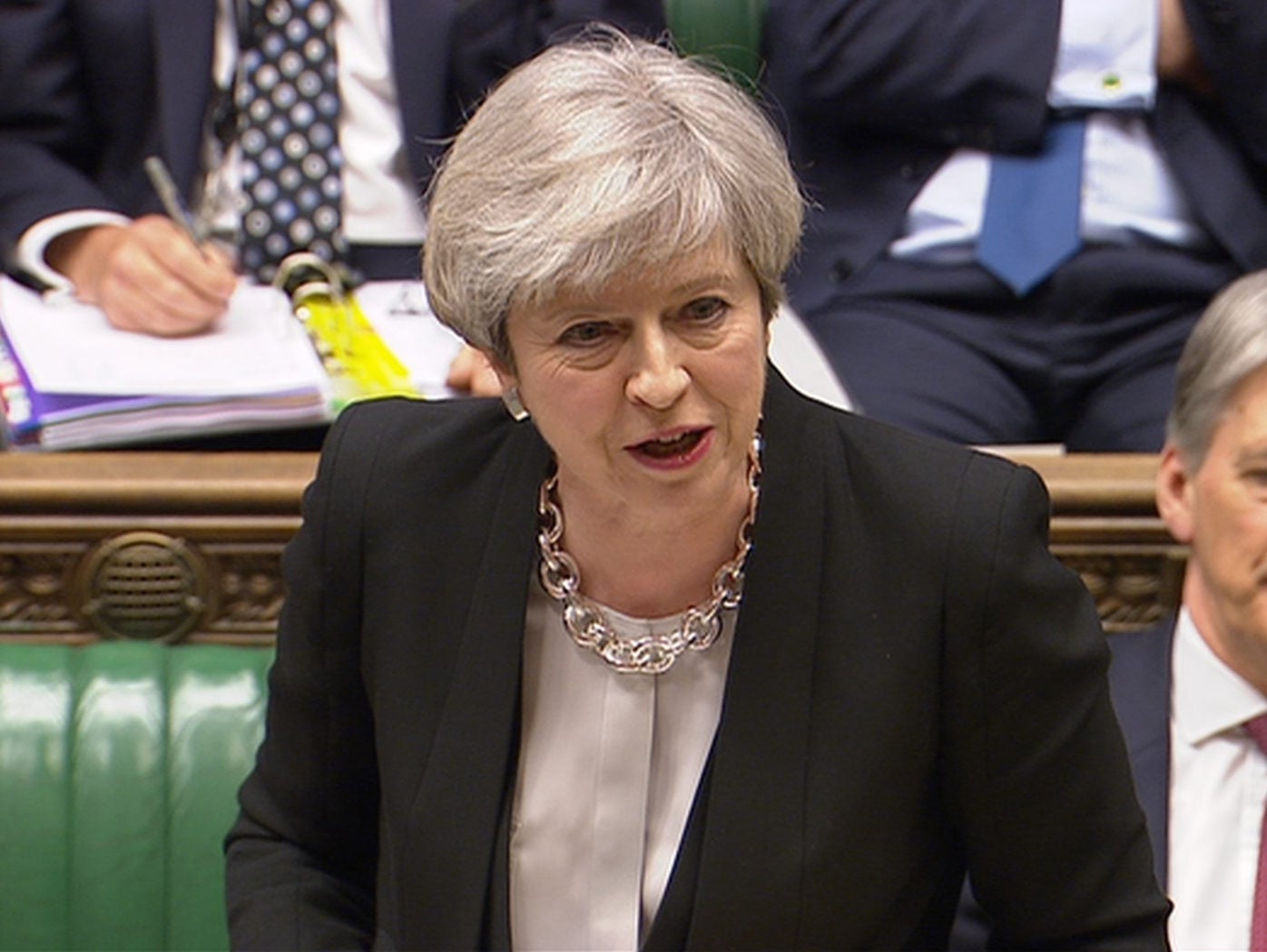
Prime Minister Theresa May has promised to protect the ability of the free press to hold politicians and the powerful to account.
Her message at today’s PMQs comes one week after Labour leader Jeremy Corbyn warned media owners that “change is coming” in a video responding to claims he met with a Communist spy.
May defended the importance of a free press in a democracy, after recently revealing she wanted to create a “fair playing field” for local media struggling to stay afloat in the digital advertising environment.
She said: “A free press is very important, it underpins our democracy.
“And whatever they say about us, whatever they write about us, actually it’s important that they are able to hold politicians and the powerful to account, and they are able to shine a light in some of the darkest corners of our society.
“And as far as I’m concerned as Prime Minister, while I’m Prime Minister, that will never change.”
May was responding to a question from Anne Main, Conservative MP for St Albans following the Daily Mail’s coverage of a “racist” political pamphlet from 1961 bearing Max Mosley’s name as publisher.
Main said: “A free independent press is vital to our country,” as she raised concerns about the links between Mosley and alternative press regulator Impress and “some of our leading politicians”.
Mosley has previously paid £500,000 to deputy Labour leader Tom Watson, who supports reforms on the press in his role as Shadow Culture Secretary.
The Prime Minister said some people will have been “surprised” to learn of Mosley’s links with certain leading politicians.
The Mail’s coverage, including 11 news pages and a leader column, saw the paper question whether Mosley had committed perjury during a privacy case against the News of the World in 2008.
At trial, the former motor racing boss denied the existence of the pamphlet bearing his name and asked the prosecution to produce it, which they could not do at the time.
In a statement to the Mail, Mosley said that, like it, his views had “changed since the early 1960s”.
He added: “It appears that this historical investigation is yet another misconceived attempt to intimidate and deter me and others from supporting the vital reforms needed to protect ordinary people against the bullying of newspapers like the Daily Mail.”
But, in an interview last night with Channel 4 News, which has also obtained a copy of the pamphlet, Mosley was forced to deny perjuring himself.
He said: “Perjury is saying something you think is untrue – you know is untrue. I said something which I knew in my own mind was true. There’s no question of perjury, it’s a really stupid and offensive question to ask that.”
Mosley is currently threatening legal action against the Mail, Sun, Times and Mirror. He has issued the claim under the Data Protection Act and claims the papers’ use of “sensitive personal data” about him in articles is a breach of principles enshrined in the act.
May has vowed to overturn House of Lords votes for tighter regulation of the media under amendments to the Data Protection Bill, which would impose cost penalties on publishers who breach its terms – forcing them to pay both sides’ fees whether they win or lose.
Picture by Parbul TV/Handout via Reuters TV
Email pged@pressgazette.co.uk to point out mistakes, provide story tips or send in a letter for publication on our "Letters Page" blog
